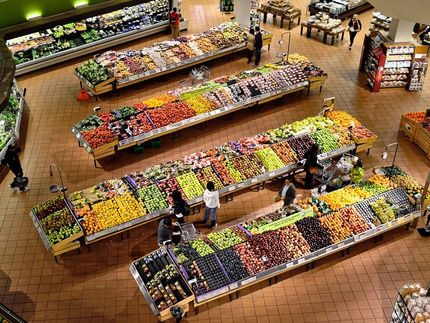Pathogens in foods: progress and challenges
Third BfR symposium on "Zoonoses and Food Safety"
Pathogens such as salmonella, campylobacter and viruses found in and on food pose a health risk. "Contamination of food with pathogens must be avoided to the greatest extent possible", says Professor Dr. Dr. Andreas Hensel, President of the Federal Institute for Risk Assessment (BfR). "This rule applies to the production, processing and distribution of food and also to private households." The third BfR symposium on "zoonoses and Food Safety" presents current data and research results on pathogens which can be transmitted to humans via food. The presentations will cover results from so-called zoonoses monitoring and pathogen control programs, the latest insights into the detection of pathogens in food, and new instruments used in the investigation of food-borne disease outbreaks. The event will take place in the BfR from 10 to 11 November 2014. It will be attended by about 200 experts from the worlds of science, testing facilities, supervisory authorities and business.
The symposium will open with an overview on results from the zoonoses monitoring which has been conducted in Germany for five years. The goal of the monitoring programme is to observe in the food chain the presence of different pathogens which can be transmitted to humans either directly from the animal or via food (zoonosis).
Among the pathogens that are recorded as part of the monitoring programme are “classics” such as salmonella and campylobacter which are frequently found in animal populations and hence also in food. Salmonella provide an illustrative example for presenting and discussing the successes but also the challenges of zoonosis control: whereas it was possible to reduce the salmonella contamination levels in poultry populations, the levels remained constant in pig populations. It is important to analyse the causes of this difference and to further develop suitable remedial measures.
On the occasion of the BfR symposium, rare bacterial pathogens will also be discussed, for example those that cause bovine tuberculosis and Q fever. In addition, viruses that can be found in food are a topical subject that has become more significant in recent years. In Germany, this became clear in the autumn of 2012 when norovirus infections transmitted through frozen strawberries caused illness in large numbers of people.
As part of the debate on how to prevent food-borne disease, the BfR emphasises the role of consumers and notably the importance of kitchen hygiene in private households. The BfR symposium will also address the question to what extent consumers’ expectation that food ought to be safe is reflected in the way they themselves handle food. To illuminate this question, studies conducted in Great Britain and the Netherlands will be presented.
In the investigation of disease outbreaks attributable to food it is important to identify the foods responsible and their trade channels and to detect the pathogen in the relevant foods. Consequently, new insights gained from research on traceability and quick pathogen detection will be presented as well.
Organizations
Other news from the department science

Get the life science industry in your inbox
By submitting this form you agree that LUMITOS AG will send you the newsletter(s) selected above by email. Your data will not be passed on to third parties. Your data will be stored and processed in accordance with our data protection regulations. LUMITOS may contact you by email for the purpose of advertising or market and opinion surveys. You can revoke your consent at any time without giving reasons to LUMITOS AG, Ernst-Augustin-Str. 2, 12489 Berlin, Germany or by e-mail at revoke@lumitos.com with effect for the future. In addition, each email contains a link to unsubscribe from the corresponding newsletter.


















































